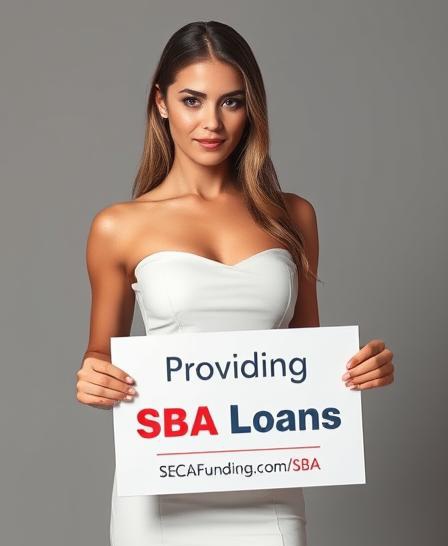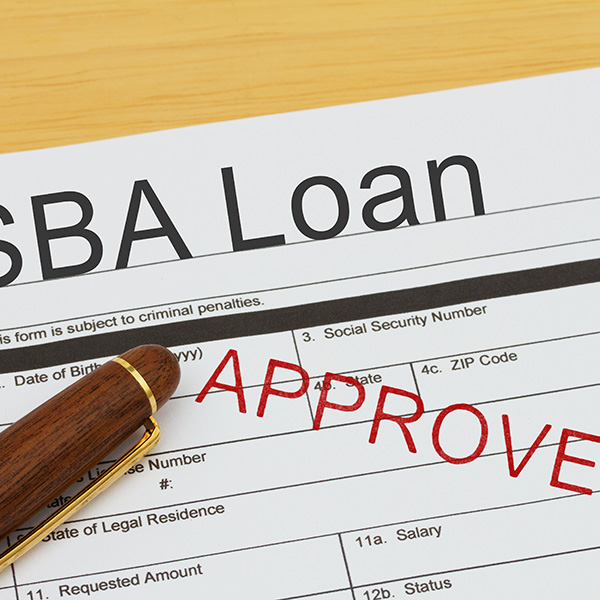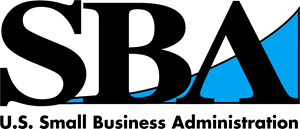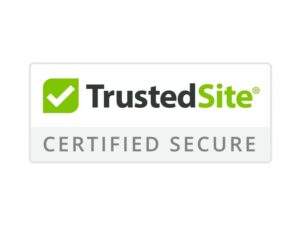We Provide SBA Loans
SBA Business Loans

Created in 1953 A.D., the U.S. Small Business Administration (SBA) assists small business owners and entrepreneurs in their pursuit of the American dream. The SBA is the only cabinet-level federal agency fully dedicated to small business and provides counseling, capital, and contracting expertise as the nation’s primary federal resource and voice for small businesses.
SBA 7(a) loans are the most common type of loan used in SBA business loan financing programs. Its name is derived from section 7(a) of the Small Business Act which authorizes the SBA to provide business loans to America’s small business entrepreneurs.
All 7(a) loans are provided by banks and certain non-bank traditional lenders known as SBA “participants” working directly with and through the SBA.
SBA 7(a) loans: Ideal financing solution for small businesses needing equipment and other tangible assets.
The 7(a) package covers SBA equipment loans, allowing you to purchase tangible assets using the funding guarantee you receive from the government. With an SBA loan, business owners can get long terms and competitive interest rates. These types of loans, such as 504 loans, can be used for all types of financing, including to buy equipment. However, you often will need a decent credit score and reliable annual revenue.
Get Funded & Help Your Business Grow With the SBA Loan you need!
Call Us Now, Today! Toll-Free +1 (800) 413-5167 Extension 9
Get SBA Loans with low interest rates and long repayment terms.

7(a) Loans
SBA guaranteed loans of up to 85% of amounts borrowed up to $150,000 and guarantees of up to 75% for amounts in excess of $150,000 threshold. Maximum loan amounts of up to $5,000,000 are guaranteed by the United States Small Business Administration.

CDC 504 Loans
The SBA 504 Loan or Certified Development Company program is designed to provide financing for the purchase of fixed assets, which usually means real estate, buildings and machinery.

SBA Microloans
The Microloan program provides loans up to $50,000 to help small businesses and certain not-for-profit childcare centers start up and expand.
The average microloan provided through this unique program is about $13,000.

How SBA Loans Work

SBA loans are one of the most popular methods of finance available to small business owners but it is important to understand that the SBA is NOT a direct lender and does not actually originate loans. Instead, the SBA provides loan guarantees for designated and approved lending institutions (often community banks) who will then provide financing for small business owners with what is termed an SBA credit enhancement.
The SBA must be lender of last resort when the borrowing showing funds are not available elsewhere and additionally, the SBA also does NOT provide grant funds directly to business owners but assist certain types of businesses to qualify for federal grants under various programs. In general, the SBA addresses the needs of small business owners through three distinct ways or methods…
- Debt Financing.
- Equity Financing.
- SBA Guaranteed Surety Bonds.

- Interest Rates: Interest charged for SBA loans is lower than other loans, depending on your creditworthiness and how qualified you are for the loan.
- Loan Amounts: SBA will allow you access to as high as $5.5 million with the 7(a) program, which is really possible depending on your qualifications.
- Liberal Requirements: SBA loan requirements are the fairest among all small business and they offer repayment periods of up to 25 years for real estate, 10 years for assets and up to 7 years with working capital.
- Down Payment: SBA loans are the types of loans that require down payments, but rates are lower compared to most other types of loans.
- Flexibility: You can use an SBA loan for literally anything and that flexibility has a sense of freedom that allows you to even refinance existing debt, make upgrades, buy new land and much more.


You will receive the full amount of the approved loan.
We Do Not Guarantee That Every Deal That Is Submitted To SECA Funding Company And Our Investors Network Will Be Funded As Funding Is Considered On A Case By Case Basis. Each Deal We Fund Is Based On The Business Submitting Having A Positive And Strong Monthly Cash Flow.



